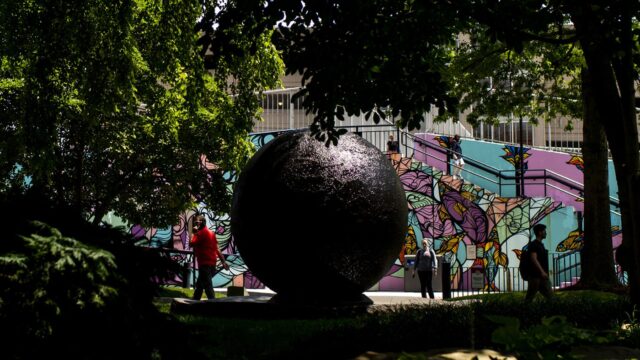Academics

We promise exciting and challenging real-world experiences to enrich your classroom learning and provide you with a competitive advantage upon graduation. To further explore our curriculum, look over our majors, minors, and graduate programs.
-
1.
Co-op is an opportunity for students in the School of Criminology and Criminal Justice to complete full time, six-month research and work positions in place of taking courses during the academic year. Placements span domestic and international environments like law offices, government offices, political campaigns, international committees, police departments, research centers, nonprofit organizations, insurance companies, juvenile justice groups, medical centers, courthouses, private banks, and more.
Co-op in SCCJSCCJ co-op employers include- United Nations
- U.S. Department of Justice
- Office of the Attorney General
- Liberty Mutual
- Fidelity Investments
- Boston Police Department
![]()
-
2.
Research opportunities are available at the undergraduate and graduate level. Students in the School of Criminology and Criminal Justice have access to Northeastern’s 30-plus interdisciplinary research centers and more than 600 full time faculty collaborating on basic and applied research in the United States and around the globe.
Research CentersOngoing research projects include- Tracking the Sale and Spread of Illegal Guns in the U.S.
- Bias Victimization Against Latinos
- Building Evidence on Security and Community Resilience in the Caribbean
![]()
-
3.
Study abroad programs give students a window into other cultures, while offering opportunities to practice language skills, develop better communication skills, and incorporate classroom knowledge into real-life experiences. Students take classes at a foreign university, typically taught by local faculty members. Study abroad programs are offered during the Fall, Spring, or Summer semester at Northeastern’s partner institutions.
Study AbroadPast Countries of Study Include- Lisbon, Portugal
- Amman, Jordan
- Tokyo, Japan
- Buenos Aires, Argentina
- Cape Town, South Africa
![]()
-
4.
Directed Studies are available for students from the School of Criminology and Criminal Justice who want to dig deeper into a particular topic. Once a student asks if a professor would advise them for a directed study, the two then work together to develop a syllabus made up of readings and activities. Usually the classes are project-based, and sometimes they are used to set students up for working on faculty research or for developing their own research project or thesis. We can’t cover every law, crime, and justice topic in detail in one of our existing classes, so this allows students to work with a faculty member to learn more about a particular topic. It also allows the student to take more of a leadership role in their studies.
Find FacultyPrevious Directed Studies Include- "Work and Crime"
- "Crime and Journalism"
- "The Politics of Drug Laws"
![]()
-
5.
Service-Learning enables students to engage in hands-on service to address community needs. In the School of Criminology and Criminal Justice, students may seek out opportunities with our partnering schools, neighborhood agencies, health clinics, and nonprofit organizations.
Service LearningPast Community Partners- Action for Boston Community Development
- Commonwealth of Massachusetts
- Greater Boston Chinese Golden Age Center, Hong Lok House
- Green Streets Initiative
- Resilient Sisterhood Project
![]()




